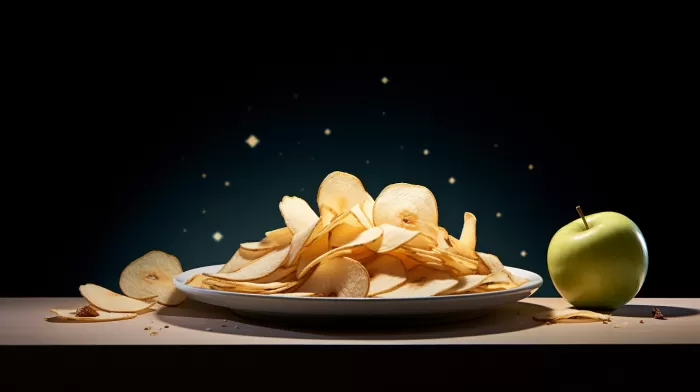Late-night snacking can be difficult to resist, especially with our brains being wired to crave food in the evening. According to a study at Brigham Young University (BYU), the brain’s neural response to high-calorie foods is dampened in the evening, making us eat more to feel satisfied. Another study at the University of Buffalo found that emotions are more influential in determining food choices and eating habits than our previously set plans.
Mindful Snacking Strategies
Being aware of your cravings and the body’s signals can help curb those late-night binges. Understanding that snacks at night are less satisfying allows you to remind yourself that you won’t enjoy them as much as you think. Prepare for potential cravings by having healthier alternatives at hand, making it easier to choose nutritious options when the urge arises.
Substitute with Healthy Alternatives
Substituting high-calorie, unhealthy snacks with healthier options can prevent overindulging while satisfying your cravings. Snack substitutions could include:
- Greek yogurt with fruit or honey
- A handful of almonds or mixed nuts
- Rice cakes with peanut or almond butter
- Veggie sticks with hummus
- Fresh fruit or a smoothie
By opting for lower-calorie alternatives, you can enjoy snacking at night without feeling guilty or sabotaging your weight-loss goals.
Establish a Routine
Setting a daily eating schedule can help control your hunger and cravings. Eating regular, balanced meals and snacks throughout the day keeps your blood sugar levels stable, preventing late-night cravings. Establishing a routine also helps train your body to expect food at certain times, making it less likely to crave unhealthy snacks after dinner.
Consider Emotional Eating
Emotional eating can contribute significantly to late-night snacking. Assess your emotions when you have the urge to snack at night. Are you feeling stressed, sad, or bored? Identifying the cause of emotional eating can help you find healthier ways to cope with your emotions and reduce your cravings for unhealthy snacks.
Drink Plenty of Water
Sometimes, thirst can be mistaken for hunger, causing you to reach for a snack when you actually need water. Staying hydrated throughout the evening can help prevent late-night snacking. Drinking a glass of water before reaching for a snack can help you determine if you’re truly hungry or simply thirsty.
Set Boundaries
Setting boundaries on nighttime snacking can help you build discipline and control your eating habits. Limit your snacking time or set a “kitchen curfew” to prevent mindless grazing after dinner. Consuming a satisfying and filling dinner can also keep you from late-night snacking.
Get Enough Sleep
Lack of sleep can cause cravings for high-calorie, high-fat foods, making it tougher to resist late-night snacking. Prioritizing a good night’s sleep can help regulate your appetite and reduce the urge to snack when you should be sleeping. Create a relaxing bedtime routine, maintain a consistent sleep schedule, and turn off electronic devices before bed to encourage a better night’s rest.
Reward Yourself
It’s essential to practice self-compassion and reward yourself for the progress you’ve made in curbing late-night snacking. Knowing that you can indulge occasionally in a favorite snack can make it easier to resist them most of the time. Remember that no one is perfect, and it’s okay to give in to a craving now and then – just be sure not to overdo it.
The key to managing late-night snacking is developing healthy habits, choosing nutritious snacks, and addressing the emotional aspects of eating. Experiment to find the most effective strategies that work for your lifestyle, and remember that making progress takes time. Be patient with yourself, and take it one step at a time.



